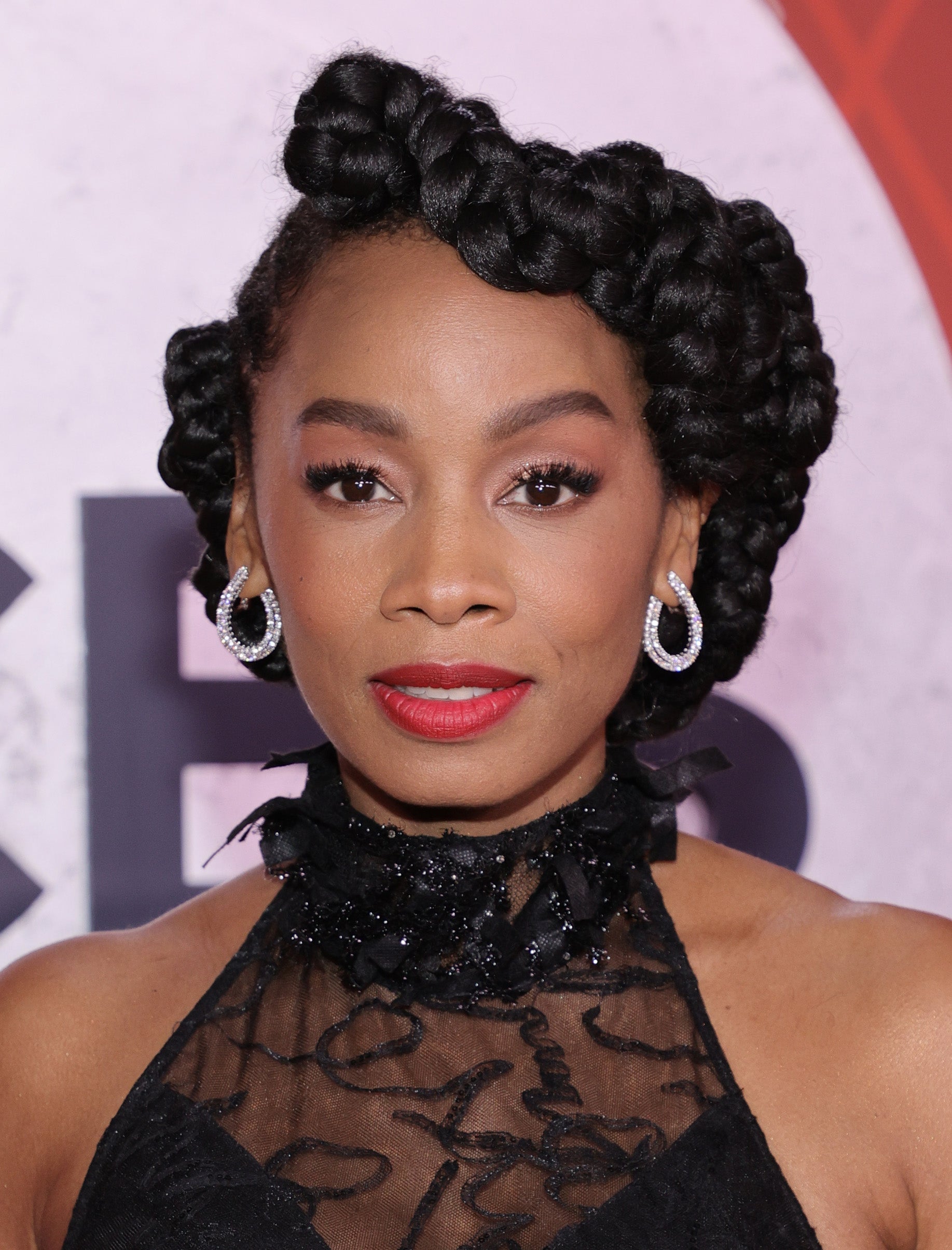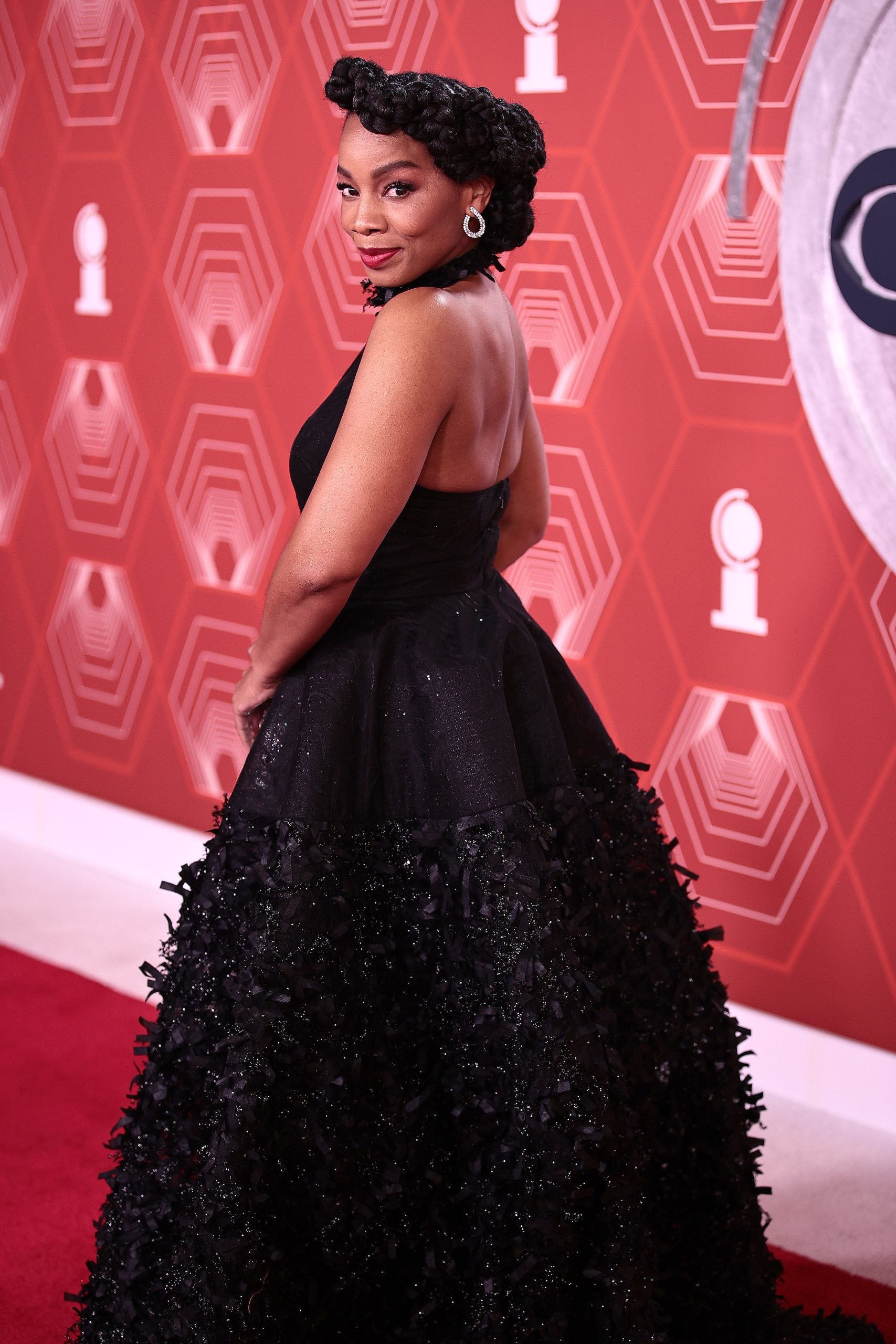
Anika Noni Rose is meeting Black women with the grace they’ve shown her as the season three host of the Being Seen podcast.
During the introduction the Tony award-winning actress, singer, producer and author declared “Black women need each other.” She told ESSENCE how the Black women in her life show up for her. “Sometimes it’s really visible. Sometimes it’s really small. Sometimes it’s being able to call your girlfriend and ugly cry in ways that you can’t necessarily, or aren’t allowed to, sometimes it’s being overwhelmed by life’s needs and moments,” she said. “I have friends who are so gracious, they’re so gracious with me.”
The award-winning podcast seeks an “in-depth exploration of culture’s role in resolving the tension between how we are seen and how we see ourselves.” The third season is devoted exclusively to seeing these kind of Black women.
Rose dove into its mission with sensitivity, honoring the “trust and open honesty with which the women that I spoke to came to the space.”
She joins a growing number of creatives developing audio content including Jemele Hill, Lena Waithe and Taraji P. Henson. Each episode features a unique piece of artwork curated by art historian, art advisor, and curator Cierra Britton. Britton is the founder of the first standalone New York City gallery dedicated exclusively to centering the work of artists who are women of color. The artists chosen for the podcast covers include Quiana Parks, Thenjiwe Niki Nkosi, and Sophia-Yemisi Adeyemo-Ross.

In the season opener, Rose spoke with Ledisi and Roxane Gay. “They gave me so much of themselves in ways that I don’t think we have seen or heard from them in public spaces,” she said.
The episode focused on power.
Celebrities have been asserting their power by taking the reins in their public conversations. Athletes are opting out of press conferences and pop stars are skipping out on promo runs. “So often we in the spotlight do interviews and then we read or hear the interview and the slant is so different than what was happening in the moment or we were completely misquoted or something. And so you’re always trying to keep yourself safe,” Rose admitted.
“I think that what the women who I spoke to experienced was the knowledge that I would always do my utmost to keep them safe. It is important to me that Black women stay safe,” she continued.
Her goal was not to humble her guests, it was to hear them. “It’s been a learning experience for me. I’ve learned a lot about people, about circumstances, about the trans community and that has been a real gift,” she said. “Each and every one of the women and femmes that I spoke to, I have a great respect for them and their journey.”
The podcast arrives when society is re-examining its treatment of women in the public eye.

Rose remained deferential to guests no matter what their status was. “I feel like that is such a gift when somebody trusts you with them in that way.”
Gay literally helped write the book on power. She uses her words to claim it. She told Rose about shifting outdated narratives about power. She is also transparent about the payment practices of the publishing industry on Twitter often saying what less popular writers might be afraid to. Rose spoke to the power in transparency.
“I think it’s assistive,” she said. “Sometimes people – they’re really helped and they’re really lifted because of that, sometimes people are punished because of that.”
“My hope is that there will continue to be, for those of us who very often live at the bottom of the pay rung or very close to it, that they will continue to be a transparency that is assistive,” Rose continued.
“Michelle Williams spoke out about last year. So, you know, when it’s happening to them, imagine the level that is happening to us,” she said. “I hope it continues to be a conversation. I know it’s hard to talk about money because we’re trained not to talk about money. It’s never comfortable. You can’t talk about money with everybody, and very often it puts you in a strange feeling position, but there has to be a way,” she said. “When you are sitting in a seat next to somebody, you should begin the same meal they’re getting, or something very close to it and there’s no question about that.”
Ledisi noted the power in choosing when to make yourself accessible during. She famously previously took a break from the spotlight.
“I do think there's power in privacy,” said Rose. “And I think that many of the people that you think, you know, best on social media, you don't know at all, if you really think about it, they look very public, but they're not because you have to have something for yourself because you can't put everything in the world and you shouldn't put everything in the world.”
She wants to be seen as a whole person with a life off-camera.
“I've always been a very private person but also, when I'm engaged with you, I'm a very genuine person. But I don't think that I owe the public all of my life. I don't think anybody does,” she continued.
Being Seen is now streaming across podcast platforms. New episodes are released every Tuesday.